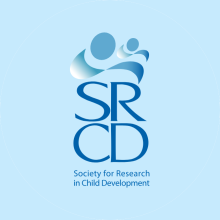February 2007 Spotlight on the SRCD Policy Fellow: Lauren R. Baskir, Ph.D.
2006-2007 Federal Executive Branch Policy Fellow
I am currently an SRCD Executive Branch Fellow at the National Institute of Mental Health in the Neurodevelopmental Disorders Branch. Prior to beginning the fellowship, I was completing my doctoral work in applied developmental psychology, investigating and integrating neuropsychological and behavioral components of adolescent decision making. This work was an extension of pre-doctoral studies from a research placement at a residential facility for juvenile offenders.
This fellowship has afforded me many opportunities to increase my experience in a variety of domains. I am currently involved in two large projects. I am assisting in organizing a workshop to evaluate the field’s current state of knowledge concerning longterm, adolescent and adult, outcomes of ADHD. It is increasingly recognized that a substantial percentage of people with ADHD show persistent impairments into adolescents and adulthood. This workshop will bring together experienced investigators with the goal of identifying research needs and opportunities for advancing treatments to improve functioning in adolescence and adulthood. One likely outcome for the workshop will be a program announcement for improving long-term outcomes in ADHD. Another outcome may be a journal publication reporting on the workshop and needed future research directions.
The second project I am involved in seems to be somewhat unique for a fellow in the extramural programs of NIMH. The NIH MRI Study of Normal Brain Development, funded by the National Institutes of Health, is a trans-NIH seven year multi-site longitudinal study using magnetic resonance technologies and cognitive/behavioral assessments in typically-developing infants, children, and adolescents. The purpose is to expand the field’s knowledge of brain maturation and to serve as a reference for further investigators to understand the course of both typical and atypical development. The first wave of data is scheduled to be released within the next few months. I have been responsible for several aspects of the scientific management of the database, including review of ethical, statistical, and management issues essential for public release of the data. I have additionally been afforded the opportunity to conduct analyses and investigations using the data.
In addition to my work on these projects, I am learning the grant process. I work with my supervisor reviewing and managing grants and attend the council reviews. One of the interesting aspects of this opportunity, especially in the current funding environment, is to learn how science and policy are intertwined from Congressional decisions and stakeholder priorities, down to an individual grantee and the science behind his/her grant proposal.
These experiences are providing me with an invaluable opportunity to broaden my knowledge, not only scientifically, but politically as well. After five years of graduate school and focusing on narrow specialized areas, the fellowship has given me a broader understanding of the entire field, how developmental psychologists can apply their work, and how policy and initiatives play a part in basic research
